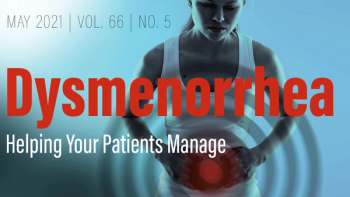
Primary dysmenorrhea is a prevalent, underdiagnosed, but treatable condition.

Primary dysmenorrhea is a prevalent, underdiagnosed, but treatable condition.

A session held at the American College of Obstetricians and Gynecologists’s (ACOG) 2021 Annual Meeting highlighted the signs and obstacles when treating women and teens for PCOS.

“Researching how obesity impacts menstrual blood loss is important to improve the ways we prevent and treat the debilitating symptom of heavy menstrual bleeding,” said Jacqueline Maybin, MBChB, PhD, senior research fellow and honorary consultant gynecologist at the MRC Centre for Reproductive Health at the University of Edinburgh.

April is STI Awareness Month, and as such, we are focusing on testing and increase of STDs in the pandemic, especially how women and minorities are affected.

New guidance from the American College of Obstetrics and Gynecologists (ACOG) calls on ob/gyns to recognize the prevalence of trauma and its impact on patients and health care teams and outlines the importance of trauma-informed approaches to delivery of care.

Overactive bladder affects a significant portion of the overall population and has substantial impact on daily activities and quality of life.

A team of investigators has found that women with Down Syndrome received gynecologic care at lower-than-recommended rates and at substantially lower rates than other forms of health care. The investigators have called for efforts to improve gynecologic care for this vulnerable population.

The scoping review revealed target areas that require additional research, as well as a need for more variety in study designs, populations, and locations.
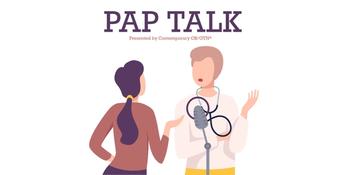
On this episode of Pap Talk, Sangini Sheth, MD, MPH discusses the latest research in cervical cancer and HPV.

Initiation of more effective contraception occurred more often among patients who were seen by a volunteer reproductive health educator during routine visits at a resident obstetrics and gynecology clinic, according to a study published in Maternal and Child Health Journal.
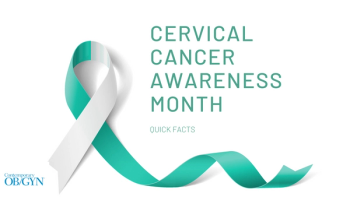
In honor of Cervical Cancer Awareness month, Contemporary OB/GYN® will publish weekly slideshows with factual information, statistics, and more.

Diagnosis and treatment of “the great imitator” that has resurged.
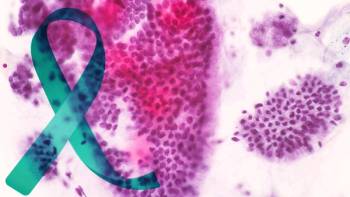
“Reaching these women is critical to reduce cervical cancer rates.”
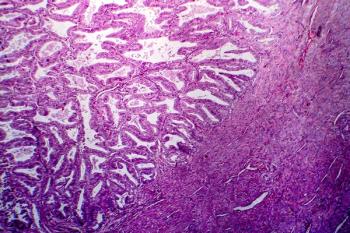
Pembrolizumab plus lenvatinib induced a statistically significant and clinically meaningful improvement in overall survival, progression-free survival, and objective response rate compared with chemotherapy in patients with advanced endometrial cancer after prior systemic therapy in the phase 3 KEYNOTE-775/Study 309 trial.

The study also found that early gender-affirming therapy vastly improves teens’ psychological well-being and body image.

Seven women’s health-focused organizations have formed the Alliance for Endometriosis to improve the lives of women afflicted with the disease.
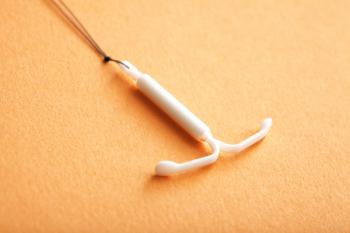
Less than half of ob/gyns offer their patients the two most effective forms of emergency contraception -- ulipristal acetate and the copper intrauterine device (IUD) -- according to a national survey.

“Improved vision, laparoscopy and endoscopic surgery were made possible by an image revolution,” said Michel Canis, MD, PhD, an ob/gyn from Clermont-Ferrand, France, who chaired the panel.

This week's poll focuses on vaginal dilation for treatment of various sexual concerns.
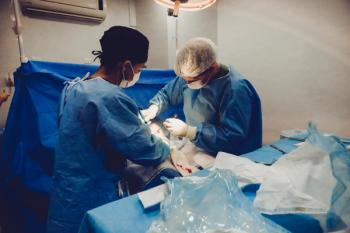
Massive intraoperative blood loss (MIBL) is strongly and independently linked to postoperative febrile morbidity following gynecologic laparotomy, according to a retrospective cohort study in the Journal of Obstetrics and Gynaecology Canada (JOGC).

An adolescent patient's right to privacy is crucial, especially for ob/gyns.

"These results may have a direct impact on health care delivery if used to develop screening for women at higher risk and to prepare providers to treat women suffering from PFD," researchers said.

Could you recognize this rare condition?

A new study in Pediatrics investigated whether there was a relationship between age of presentation for gender-affirming medical care and mental health problems.
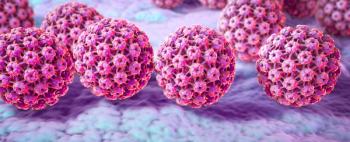
Women with high-grade cervical dysplasia are much less likely to have recurrence after primary conization if they undergo laser conization than a loop electrosurgical excision procedure (LEEP), according to a 5-year follow-up study.